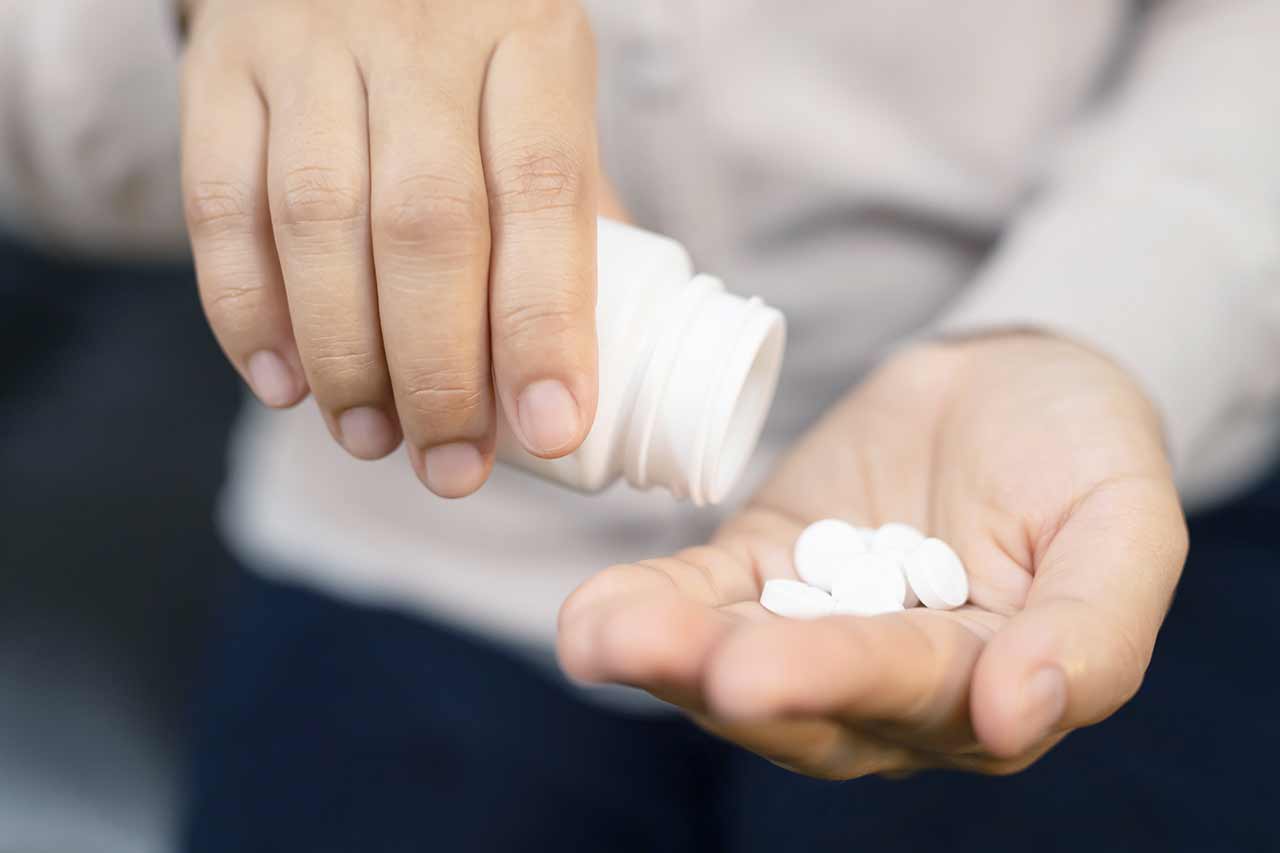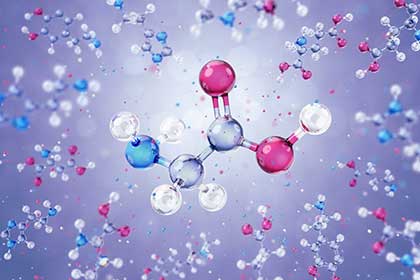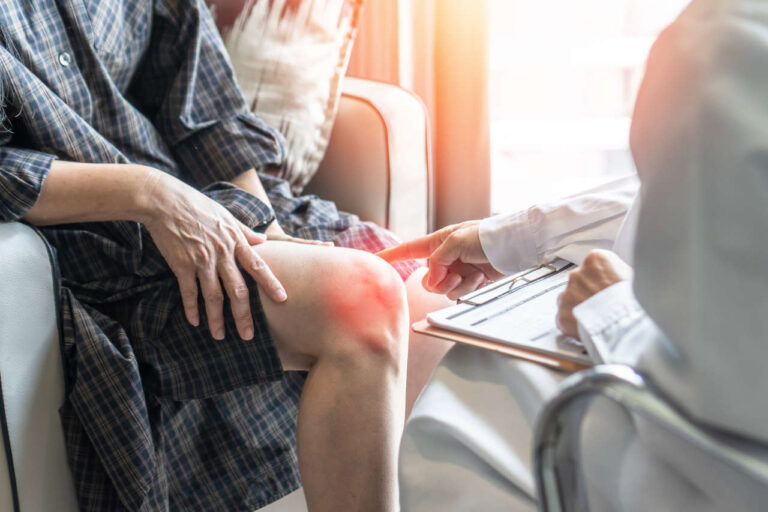
Nitisinone is a synthetic inhibitor used to treat a rare and lifelong genetic disorder called hereditary tyrosinemia type 1 (HT-1). Patients with tyrosinemia type 1 are usually unable to properly break down tyrosine (an amino acid) due to a deficiency of a specific enzyme. The failure of tyrosine breakdown leads to the buildup of tyrosine and its toxic metabolites in the tissues or other body organs. The accumulation of these toxic components causes severe and progressive organ damage, in particular, liver and kidney cancer in HT-1 patients.
Ask a Specialist About Copay Assistance
Nitisinone slows down the progression of HT-1 by preventing the formation and accumulation of toxic metabolites in the liver and kidney.
Nitisinone is sold under the brand names Orfadin and Nityr and can only be obtained through a doctor’s prescription.
How Does Nitisinone Treat Hereditary Tyrosinemia Type-1 (HT-1)?

Typically, our body breaks down protein into smaller components called amino acids. These amino acids are further broken down in a series of steps via various enzymes. Fumarylacetoacetate hydrolase (FAH) is an enzyme needed for the final breakdown of tyrosine and releases substances that the body utilizes to perform different functions.
People who are born with HT-1 lack the FAH enzyme. Their bodies only metabolize a small amount of tyrosine and produce large amounts of toxic metabolites. Nitisinone works to stop the tyrosine breakdown pathway by working as an inhibitor (a component that stops the enzyme activity).
Mode of Action
Nitisinone acts as an inhibitor of hydroxyphenylpyruvate dioxygenase (HPPD), an enzyme involved in the third step of the tyrosine breakdown pathway. Nitisinone blocks the action of this third enzyme, so the reaction won’t proceed further and make toxic metabolites in HT-1 patients.
How Is Nitisinone Used?
To get effective results, nitisinone must be used in combination with a diet that is low in protein and has a low level of tyrosine and phenylalanine. Phenylalanine is converted in the body into tyrosine; therefore, reducing foods rich in phenylalanine is recommended for HT-1 patients. Phenylalanine is found in most protein-rich foods such as milk, cheese, eggs, nuts, soybeans, beef, chicken, pork, beans, and fish.
Since nitisinone and HT-1 cause too much tyrosine in the blood, taking a diet rich in tyrosine may lead to brain, skin, and eye problems.
Dosage Forms and Strengths
Nitisinone comes in tablet, oral suspension, and capsule forms. Each form is administered orally and is available with different nitisinone strengths:
- Tablets are available in 2 mg, 5 mg, and 10 mg doses.
- Oral suspension is a white, slightly viscous, and opaque suspension that contains 4 mg nitisinone/ml (each 1 ml contains 4 mg of nitisinone).
- Hard capsules contain white to off-white powder of 2 mg, 5 mg, 10 mg, and 20 mg nitisinone.
Speak to a Specialist
Dosing Information
The dose of nitisinone can vary from patient to patient and is determined by their body weight and their health status. The recommended starting dose for adult and pediatric patients is 0.5 mg/kg twice a day for 4 weeks (1 month).
Dose Adjustment
The dose of nitisinone is adjusted according to the level of succinylacetone (toxic metabolite) in the serum or urine of the HT-1 patient. For instance:
- If succinylacetone is still detectable in the serum of HT-1 patients after taking a stable dose (0.5 mg) for four weeks, then the dose is increased from 0.5 to 0.75 mg/kg twice daily.
- Once the succinylacetone is undetectable in the serum of HT-1 patients, the dose is adjusted according to the patient’s body weight. The maximum dose of nitisinone capsules and oral suspension is usually not more than 1 or 2 mg/kg body weight and is taken once a day.
It is recommended to consult your healthcare provider if your condition deteriorates after switching dosing from twice a day to once a day.
Missed Dose
If you missed your nitisinone dose, take it immediately. If it is almost time for your next dose, skip the missed dose and take only the next dose. Do not take a double dose.
Method of Administration
Nitisinone tablets, capsules, and oral suspension are all taken orally (by mouth) as directed by your doctor.
How Should I Take the Nitisinone Capsule?
You should take nitisinone capsules on an empty stomach either 1 hour before a meal or 2 hours after a meal.
If you have difficulty swallowing the whole capsule, you can open the capsule and mix the contents in a spoonful of water, applesauce, or baby formula. The mixture should be swallowed as is without chewing it.
How Should I Take Nitisinone Oral Suspension?
You will get nitisinone oral suspension (liquid) in a bottle along with an oral syringe to withdraw the correct volume of medication from the bottle.
If you are taking your first dose, let your suspension bottle warm to room temperature for 30 to 60 minutes and shake it vigorously for 20 seconds so that the nitisinone disperses well.
You can take the nitisinone oral suspension with or without food.
How Should I Take Nitisinone Tablets?
You can take nitisinone tablets with or without food. If you have difficulty swallowing the whole tablet, you can crush the tablet and mix it in a spoonful of water, applesauce, or baby formula. The mixture should be swallowed immediately without chewing.
Get Copay Assistance
Financial AssistanceSide Effects
Nitisinone may cause unwanted side effects. Some side effects are common and usually go away during treatment. In other cases, however, side effects could be severe and potentially life-threatening.
The following are some of the side effects you may experience after taking nitisinone suspension, tablets, or capsules:
- Headache, diarrhea, or upset stomach due to glycerol content of nitisinone oral suspension
- A severe allergic reaction with symptoms such as hives; rash; and swelling of lips, tongue, and throat
- Hair thinning
- Vision changes, and eyes becoming sensitive to light (photophobia)
- Eye redness, irritation, and pain
- Nosebleeds
In more severe cases, when you don’t eat diets restricted in tyrosine and phenylalanine, you may experience some adverse side effects due to elevated levels of tyrosine, which has been associated with toxicity to the eyes, skin, and the nervous system. Adverse symptoms include:
- Dry skin
- Keratitis (corneal ulcers)
- Corneal opacities
- Cataracts
- Conjunctivitis (pink eye)
- Painful patch of thick skin (hyperkeratotic plaques) on the palms or soles
- Leukopenia and severe thrombocytopenia
Precautions before Taking Nitisinone
While on nitisinone treatment, you should consume a diet that restricts tyrosine and phenylalanine intake.
You SHOULD NOT take nitisinone if you:
- Are pregnant or intend to conceive.
- Are breastfeeding or planning to breastfeed.
- Are allergic to nitisinone or any of its components.
- Have a previous history of eye problems (such as cataracts or corneal ulcers).
Cost
The cost of nitisinone capsules, tablets, and oral suspension varies depending on the pharmacy you visit. The following are the costs of nitisinone capsules and suspension with different strengths.
Cost of Nitisinone capsules
- Nitisinone 2 mg capsule costs about $5,748 ($95.80 per capsule) for a supply of 60 capsules.
- Nitisinone 5 mg capsule costs about $14,354.93 ($239.25 per capsule) for a supply of 60 capsules.
- Nitisinone 10 mg capsule costs about $28,700.39 ($478.34 per capsule) for a supply of 60 capsules.
- Nitisinone 20 mg capsule costs about $57,391.27 ($956.52 per capsule) for a supply of 60 capsules.
Cost of Nitisinone Oral suspension (4 mg/ml)
Nitisinone oral suspension costs about $18,772.78 for a supply of 90 ml.
The cost of nitisinone tablets is not publicly available.
REFERENCES:
- King, L. S., Trahms, C., & Scott, C. R. (2017). Tyrosinemia type I. GeneReviews®[Internet].
- McKiernan, P. J. (2013). Nitisinone for the treatment of hereditary tyrosinemia type I. Expert Opinion on Orphan Drugs, 1(6), 491-497.
- European Medicine Agency. Nitisinone prescribing information https://www.ema.europa.eu/en/documents/product-information/orfadin-epar-product-information_en.pdf
- US. Food and Drug Administration. Nitisinone prescribing information https://www.accessdata.fda.gov/drugsatfda_docs/label/2002/21232lbl.pdf













